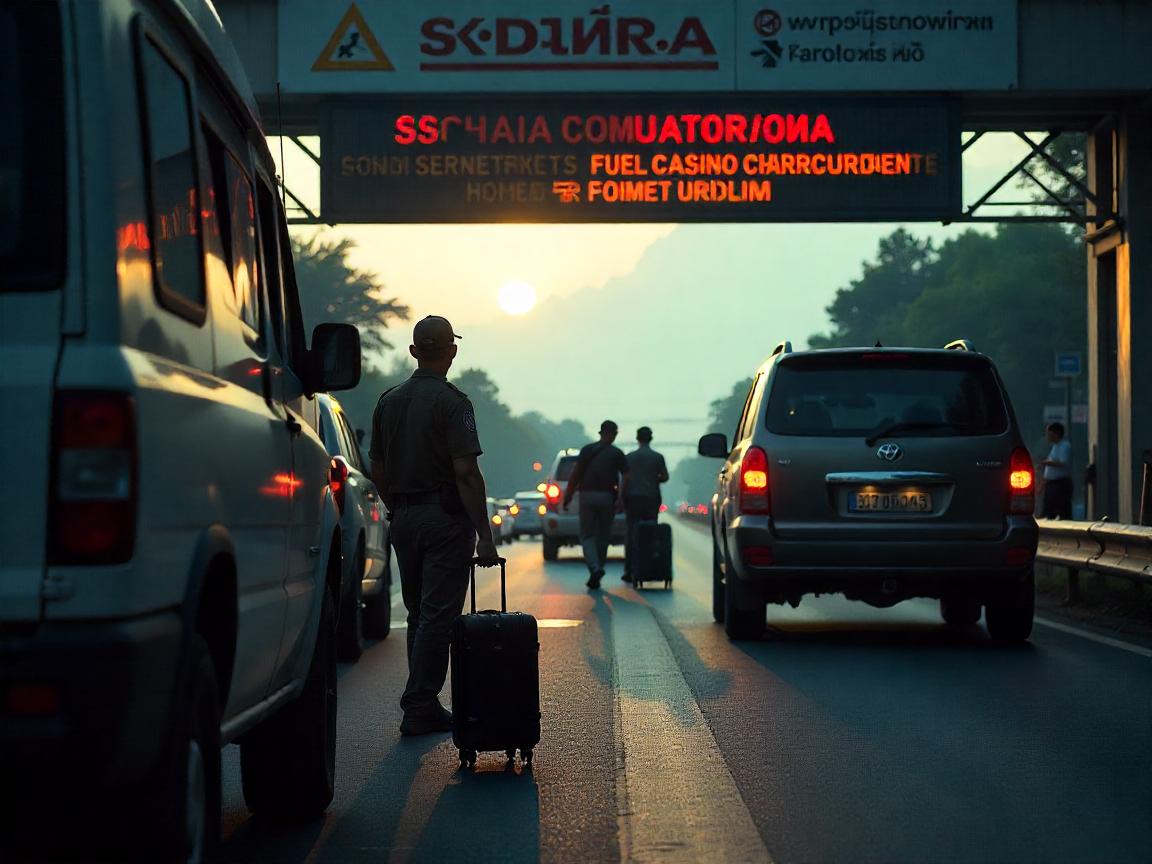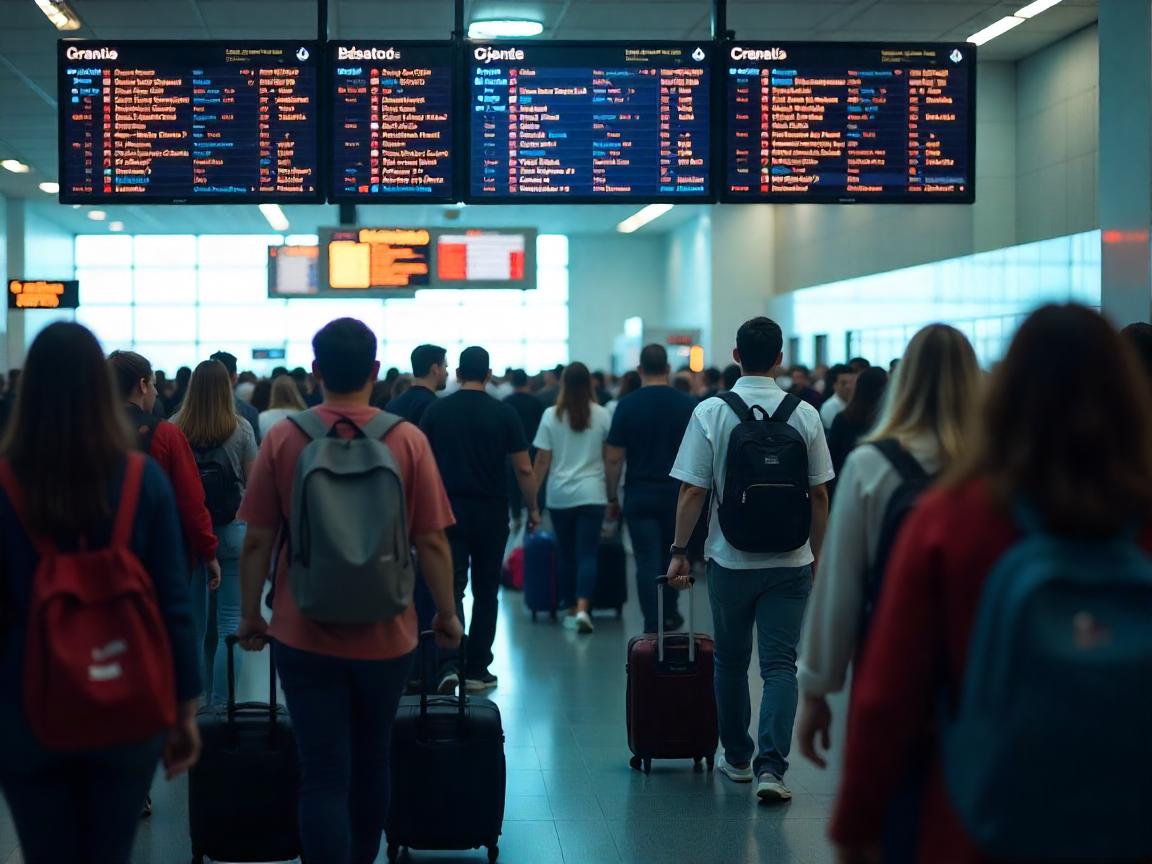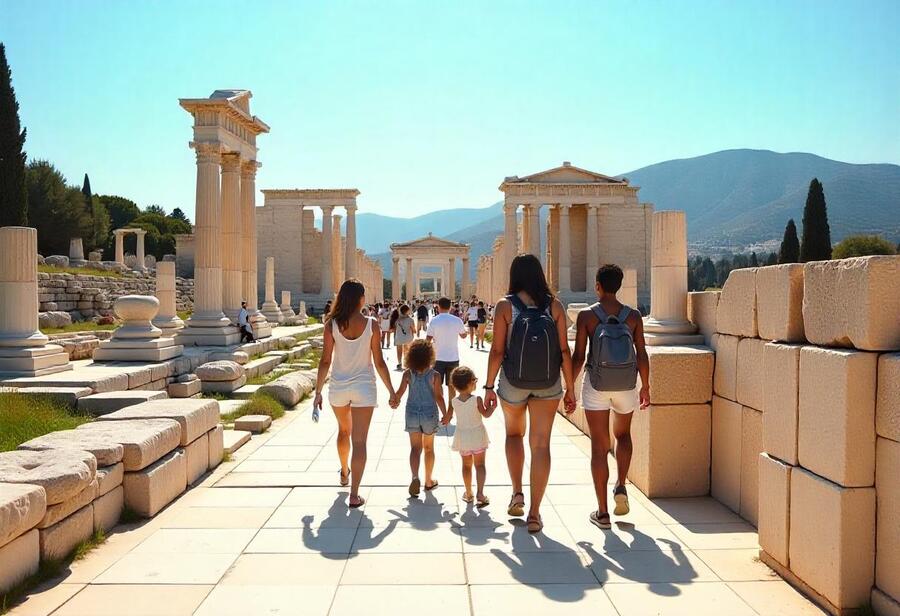≡-Thailand Cracks Down on Casino Tourism Amid Cybercrime and Border Tensions with Cambodia, Triggering Travel Disruptions and Fuel Trade Fallout, New Update for Travellers – Viral of Today
<> Viral of Today <>
Home » Destination News » Thailand Cracks Down on Casino Tourism Amid Cybercrime and Border Tensions with Cambodia, Triggering Travel Disruptions and Fuel Trade Fallout, New Update for Travellers Monday, June 23, 2025Tensions are rising fast. Thailand cracks down on growing threats tied to casino tourism and cross-border cybercrime. As border tensions with Cambodia intensify, new travel bans and trade measures are now in full effect. The clampdown is triggering travel disruptions across airports, border checkpoints, and tour routes. Meanwhile, fuel trade fallout adds more chaos—squeezing supply chains and crippling Cambodia’s energy access.Now comes a new update for travellers that changes everything. Movement across the Thai-Cambodian border is no longer routine. Casino-bound tourists are under tighter watch. Airlines are enforcing stricter checks. The atmosphere is tense. The region is on edge. Will this flare-up push the tourism industry into deeper turmoil? Or is it a calculated move to stop criminal operations before they spread further? One thing is clear—the stakes are high, and this story is still unfolding. Keep reading to discover what every traveller needs to know right now.Thailand’s Escalating Measures Against Cambodia Spark Tourism, Trade, and Travel Disruptions Across Southeast AsiaSoutheast Asia’s travel and trade networks are facing a new wave of instability as Thailand imposes sweeping restrictions targeting cross-border casino tourism and cybercrime operations linked to Cambodia. In a region known for seamless travel, vibrant tourism, and booming digital growth, the ripple effects are hitting hard.The latest crackdown stems from rising tensions following a deadly border confrontation on May 28, which claimed the life of a Cambodian soldier. Now, diplomatic friction is spiraling into travel bans, internet blackouts, and fuel supply freezes — all of which threaten the region’s delicate tourism and trade ecosystem.At the heart of the fallout: Thailand’s aggressive push to eliminate transnational scam operations operating from Cambodian soil — a campaign that now includes halting casino-related travel and tightening control of goods, people, and data flows between the two countries.Cross-Border Tourism Suffers as Casino Crackdown HitsThailand has begun enforcing a ban on outbound casino tourists bound for Cambodia — particularly to cities like Siem Reap, which have become magnets for Thai gamblers in recent years.These new rules are already hitting regional travel providers hard. Tour operators who once specialized in quick-turnaround gaming trips are reporting mass cancellations. Regional airlines are being urged to implement stricter passenger screenings for flights into Cambodia, especially for those suspected of traveling to gamble.However, identifying casino tourists versus legitimate leisure travelers remains a gray area, and the lack of clear enforcement guidelines has left the travel sector scrambling for clarity.In the meantime, tourists with plans to explore Angkor Wat, the Tonlé Sap Lake, or Cambodia’s rising ecotourism destinations now face uncertainty, long delays, and added scrutiny at borders and airports.Fuel and Internet Cuts Deepen the CrisisCambodia’s retaliatory move to block internet services, electricity, and fuel imports from Thailand marks a dramatic escalation. According to Cambodia’s Ministry of Commerce, 30% of its national fuel supply and 4% of its LNG imports come from Thailand. These cuts not only impact industrial and military sectors but could also lead to cascading effects on transport, logistics, and tourism infrastructure within Cambodia.The risk of rolling blackouts, reduced fuel access, and slowed digital connectivity poses a direct threat to hospitality operations. From fuel-powered tour buses to Wi-Fi-reliant hotels, the sector now faces new vulnerabilities at a peak travel period.Digital-dependent businesses, such as online booking platforms, travel agencies, and smart hospitality services, could also see performance disruptions. For travelers, this means potential internet outages at hotels, longer wait times, and cancellations across logistics networks.Tourism and Trade Dreams on the EdgeThe emerging conflict is more than a military standoff. It’s a direct blow to Southeast Asia’s long-term ambitions for economic integration and tourism-led recovery.Cambodia and Thailand both rely heavily on cross-border movement. Cambodia’s casino towns thrive on Thai foot traffic, while Thai border towns benefit from Cambodian shoppers, healthcare seekers, and hospitality workers.Moreover, Thailand’s Vision for a secure and tech-forward tourism economy clashes directly with the reality of rising cybercrime in neighboring countries. Cambodian cities have been named in global watchdog reports as cyber-scam hotspots, hosting call centers behind love scams, fraudulent investment pitches, and illegal betting operations.Thailand’s new response involves not just restricting travel but also proposing to block the export of goods that could aid these scams. This includes telecom equipment, computing devices, and other technologies that may be used in running illicit operations.Domestic Politics and Regional Reputation at StakeInside Thailand, the political stakes are rising. Prime Minister Paetongtarn Shinawatra, already under pressure from nationalist groups, is facing sharp criticism over her approach to Cambodia. Recent leaks of private communication with Cambodian officials have sparked a media storm, accusing her of softness and undermining military authority.As internal pressure mounts, Paetongtarn has opted for a harder line — one that now places the tourism industry, regional mobility, and economic cooperation on a fragile edge.The travel sector, once a symbol of peace and shared prosperity between ASEAN neighbors, now becomes collateral in a broader power struggle between domestic politics and regional diplomacy.Global Travel Market Watches CloselyInternational tourism boards and travel safety organizations are monitoring the situation with growing concern. Southeast Asia’s image as a welcoming, cooperative travel zone may suffer long-term damage if tensions persist.Airlines, cruise operators, and tour agencies are reviewing itineraries involving Thailand and Cambodia. Investors are watching to see if hotel development slows in contested regions. And travelers — especially those from China, Europe, and the U.S. — may begin to hesitate on future bookings to the region.Moreover, any lasting disruption to internet access and fuel supply chains may weaken Cambodia’s growing appeal as a digital nomad destination, especially in coastal areas like Sihanoukville and Kep.What Happens Next?Both governments insist they want to avoid full-scale conflict. But their actions suggest a slow boil toward deeper confrontation.For travelers, this means keeping a close eye on advisories, checking airline updates regularly, and preparing for delays. For the industry, it’s a wake-up call: stability can shift quickly, and travel freedom depends on far more than open skies and cheap fares.Thailand’s bold move to target cybercrime and casino tourism may mark the start of a wider regional reset. But in the short term, it comes at a cost — one measured not just in politics, but in canceled plans, closed borders, and strained regional unity.Tags: ASEAN, bangkok, border security, Cambodia, casino tourism, cybercrime crackdown, fuel trade, Hun Sen, Paetongtarn Shinawatra, Siem Reap, Southeast Asia Travel, Thailand, Thailand-Cambodia conflict, tourism disruption
This information will surprise you!
See also
- Read until the end to discover everything.
- Important information you need to know.
- Interesting facts and helpful tips.
Conclusion
Did you enjoy the news? Keep following us daily!













